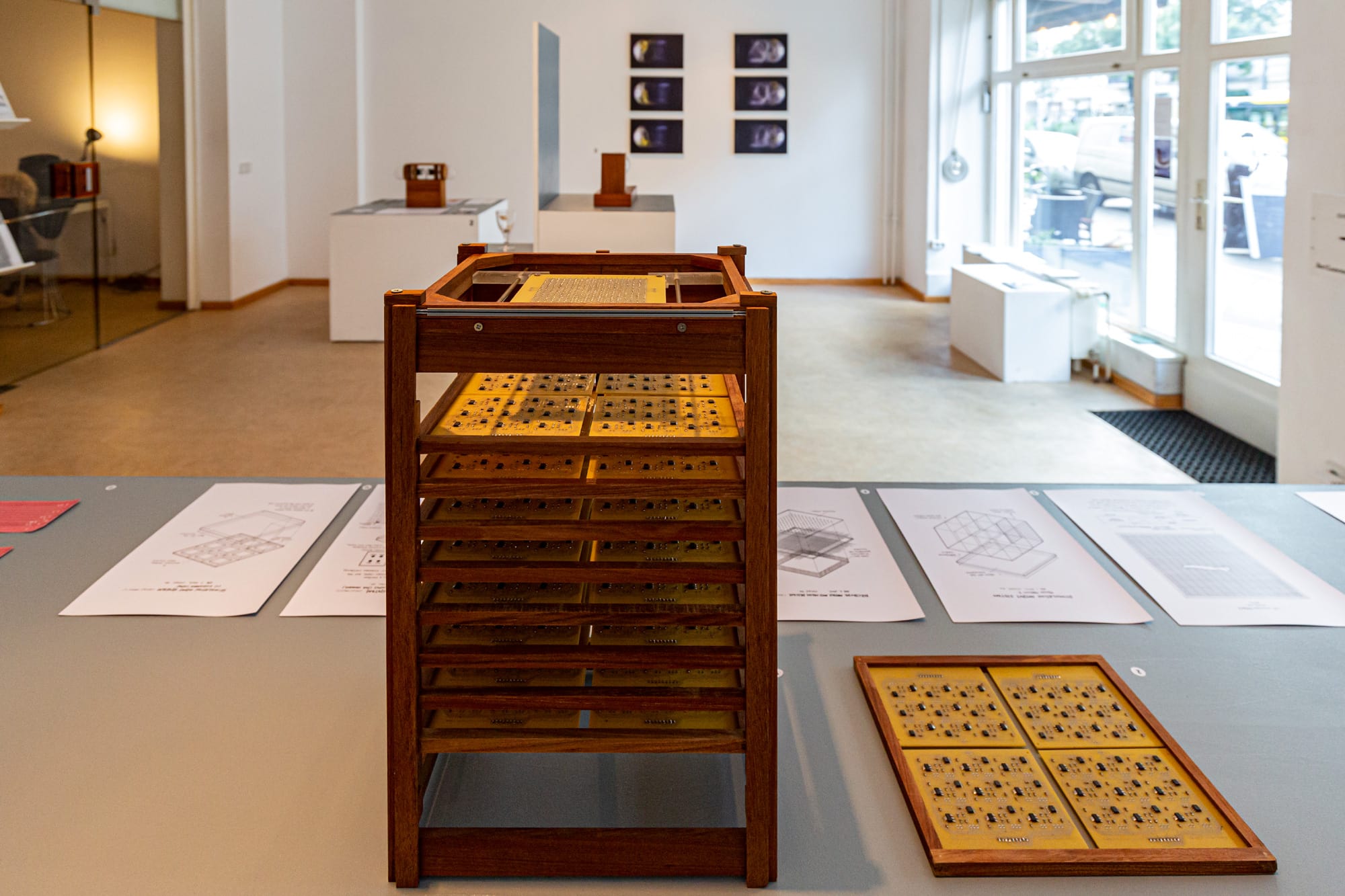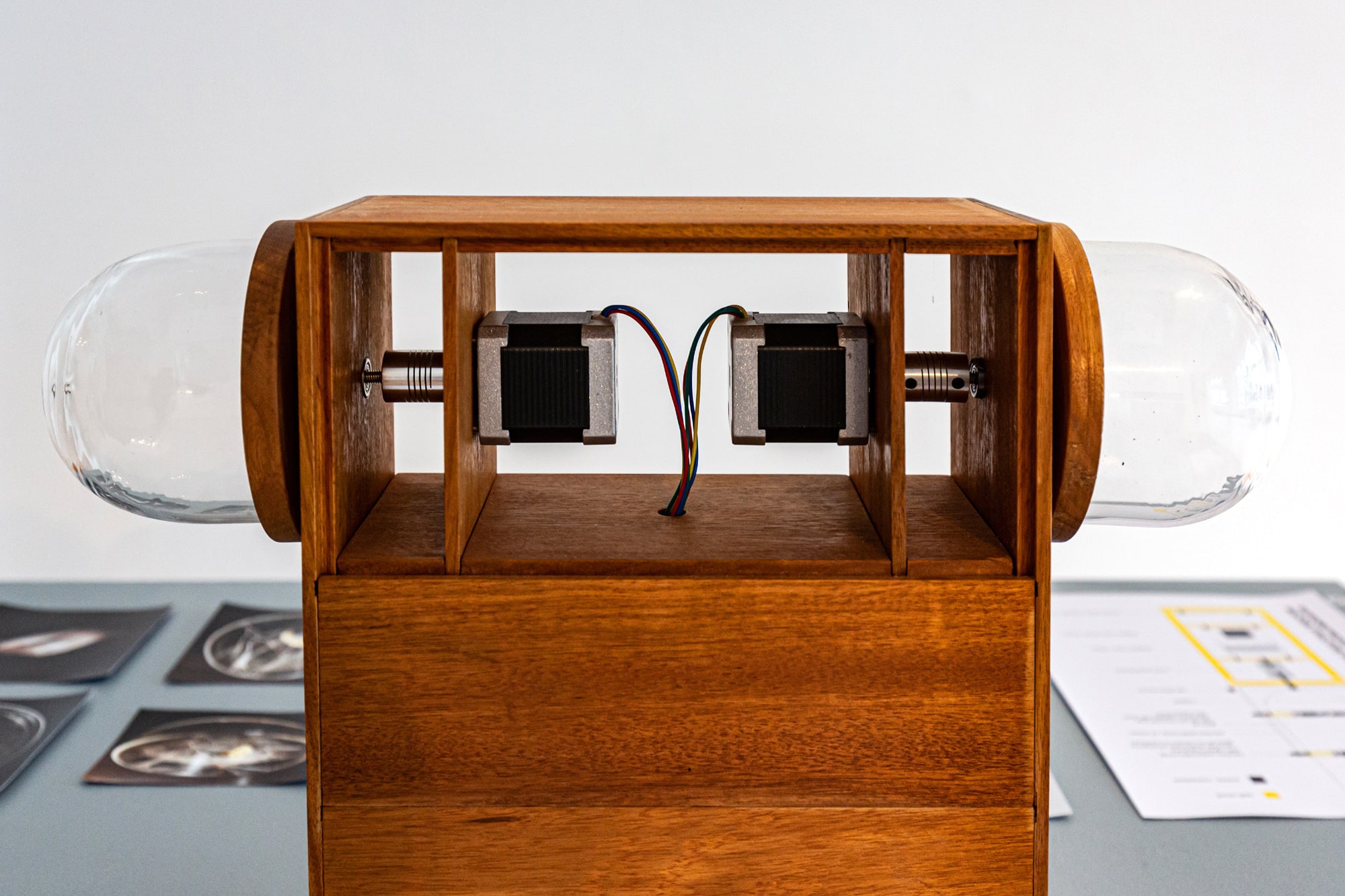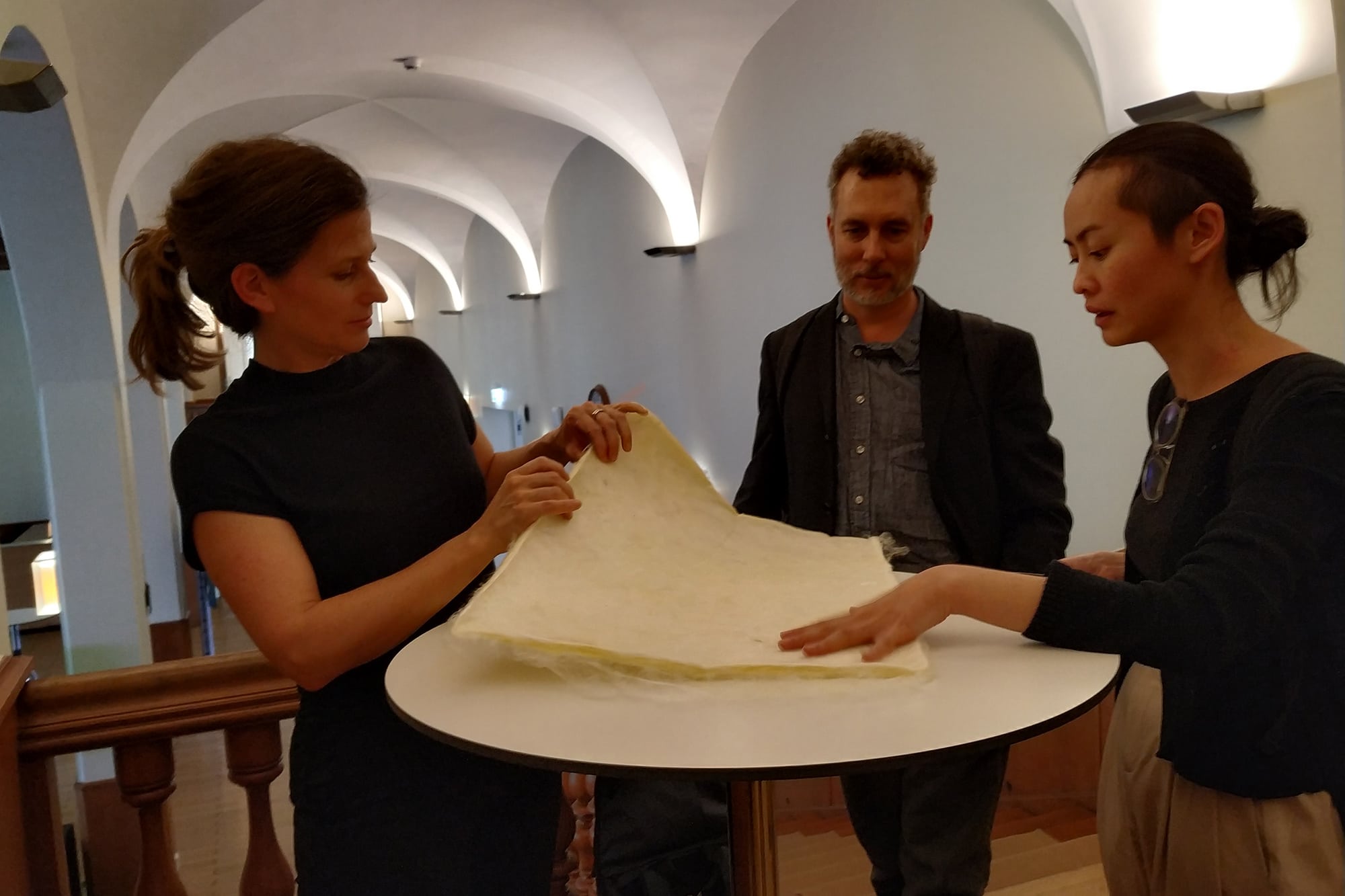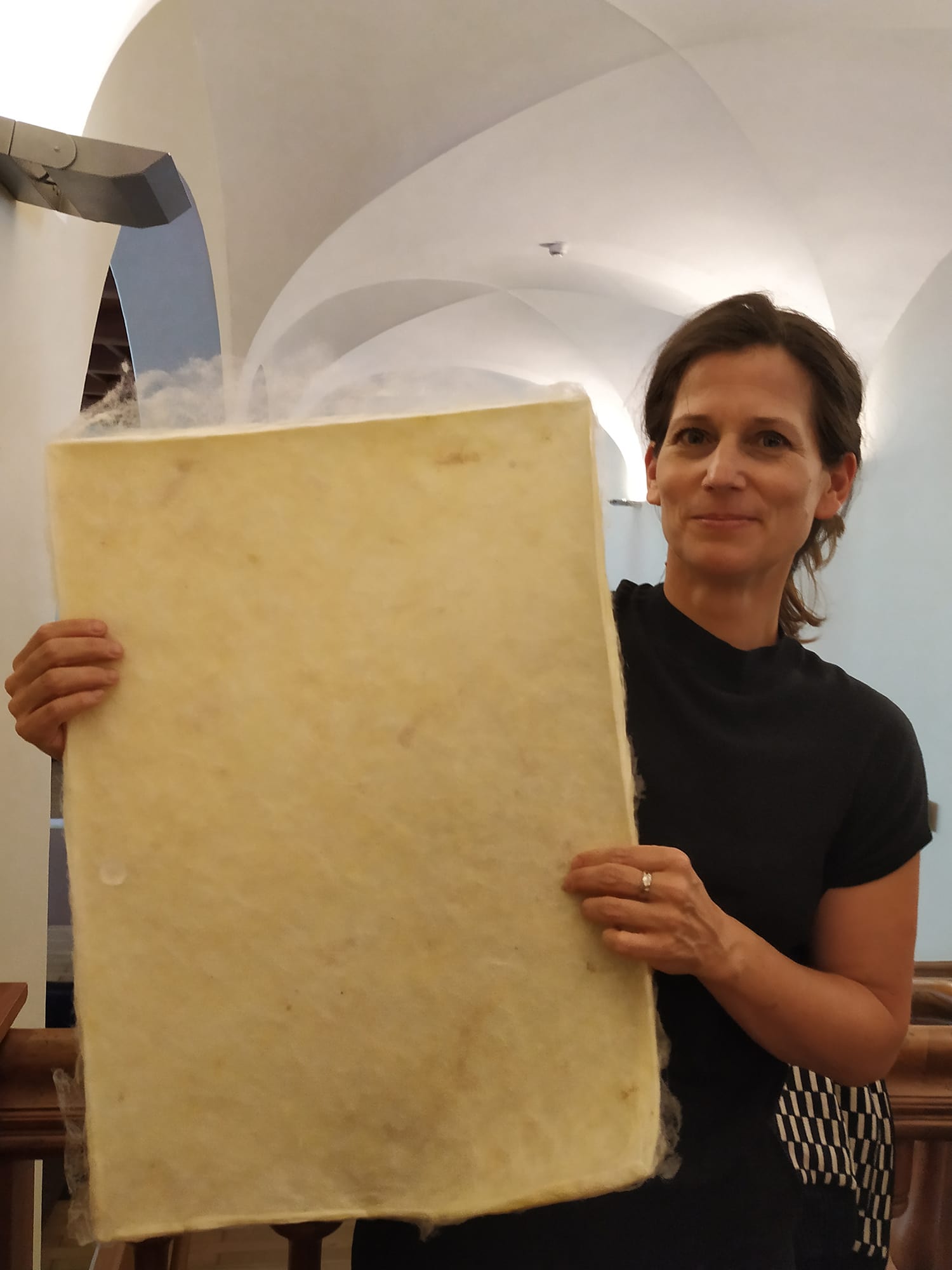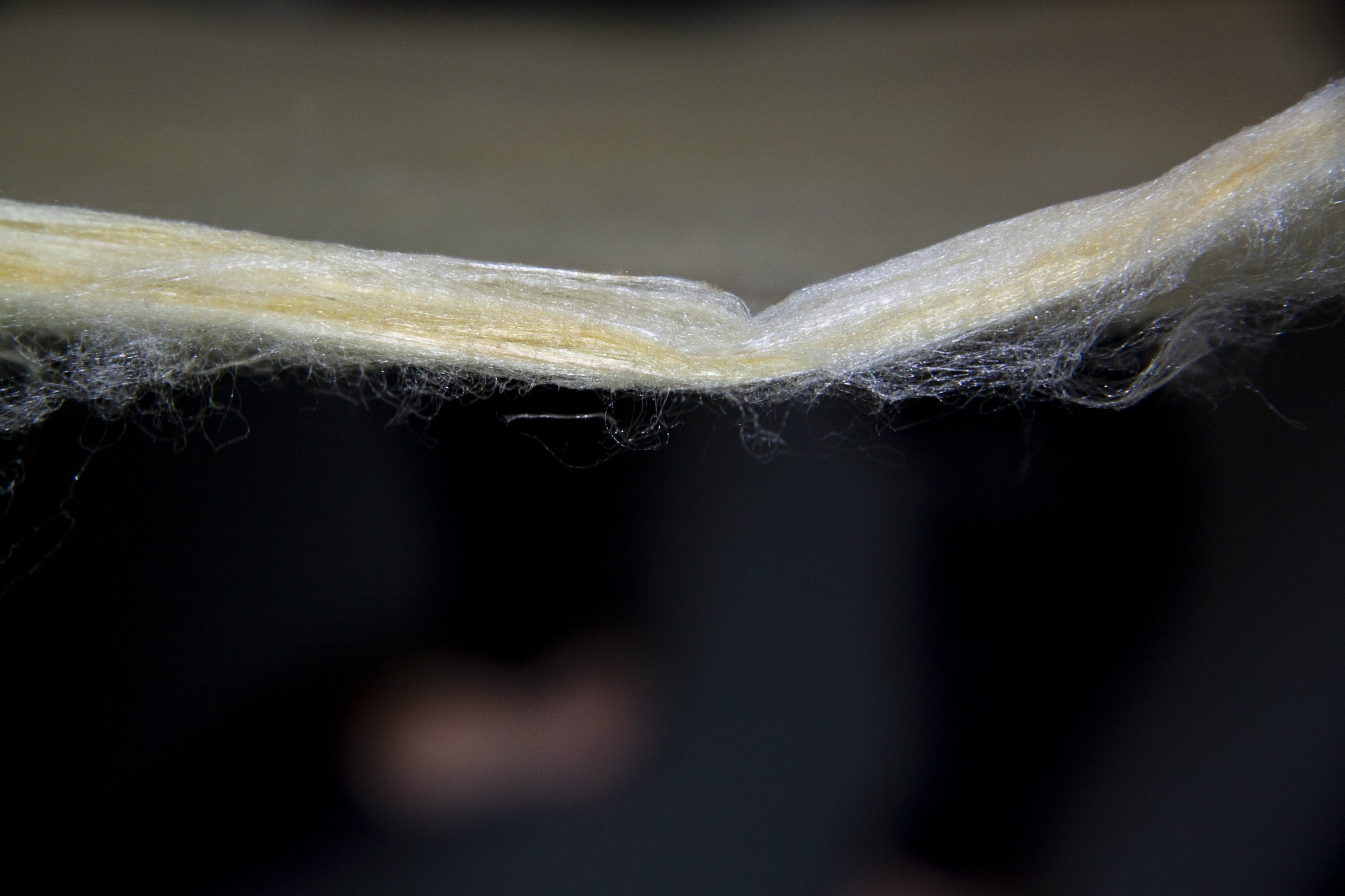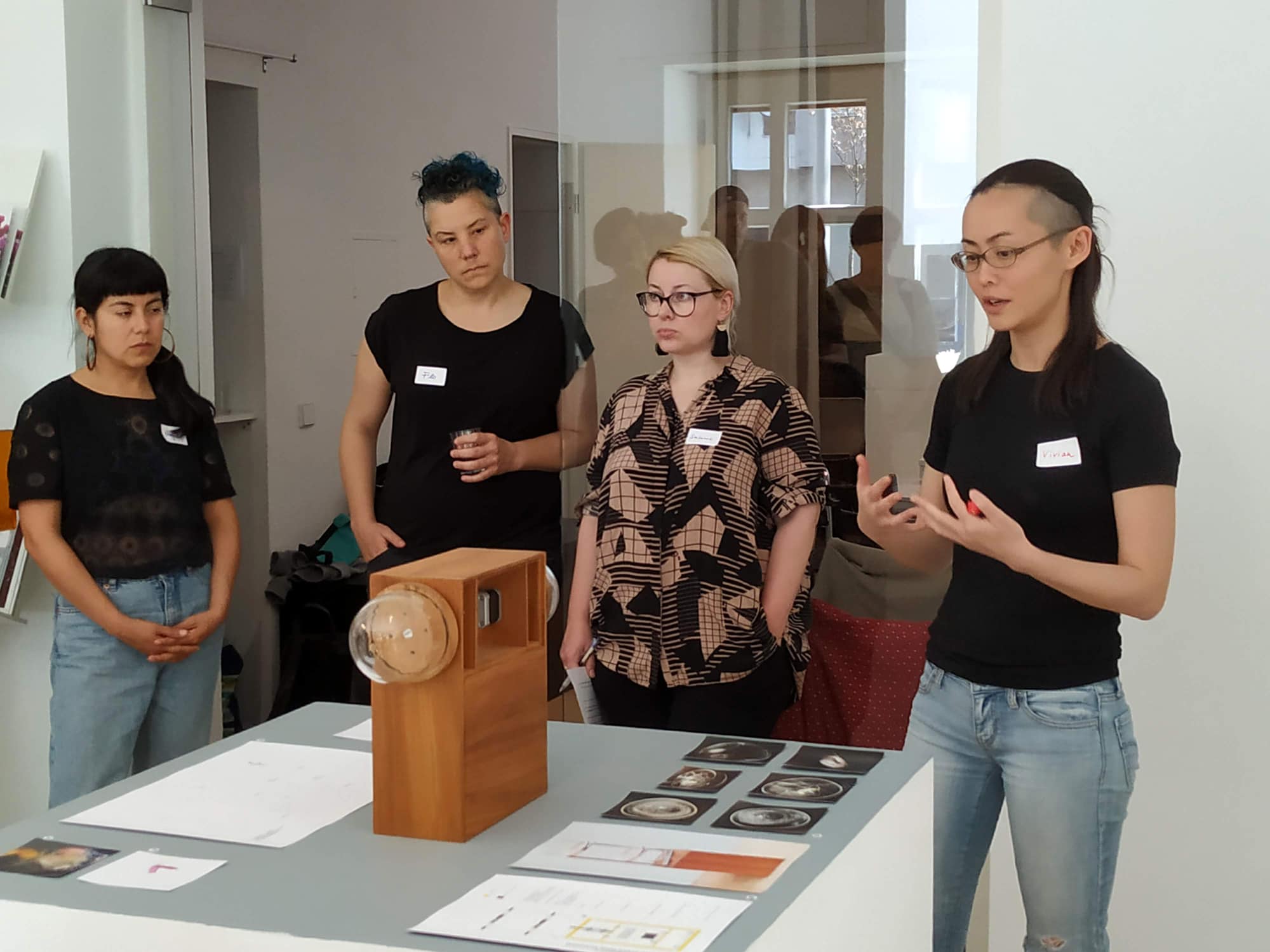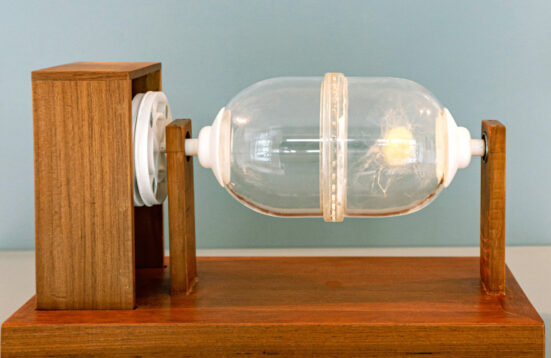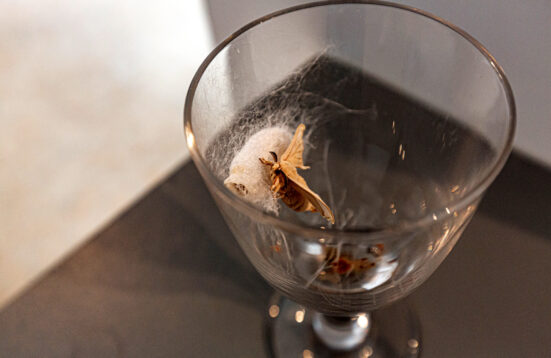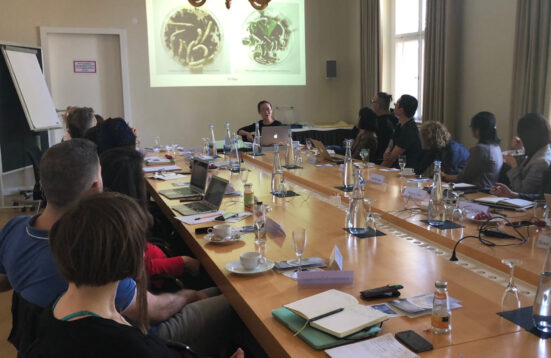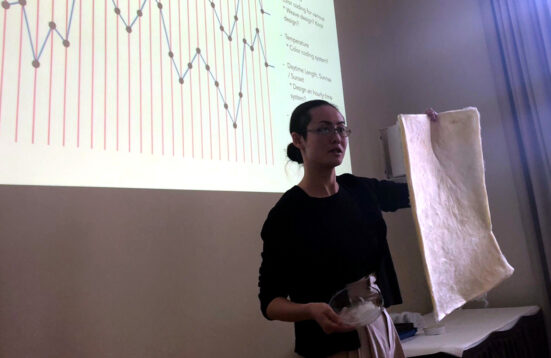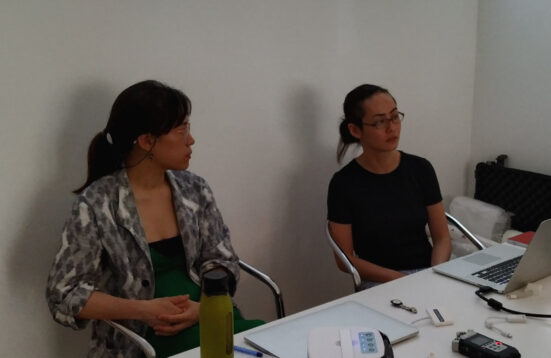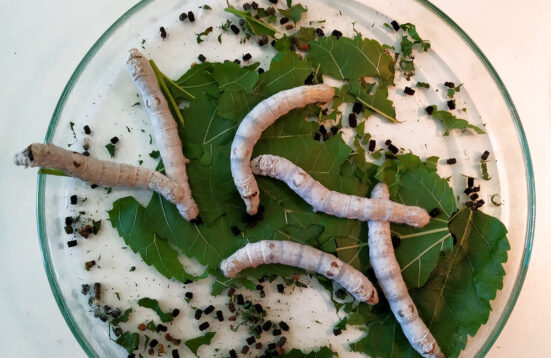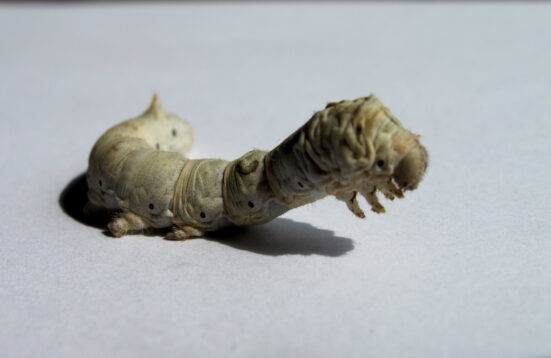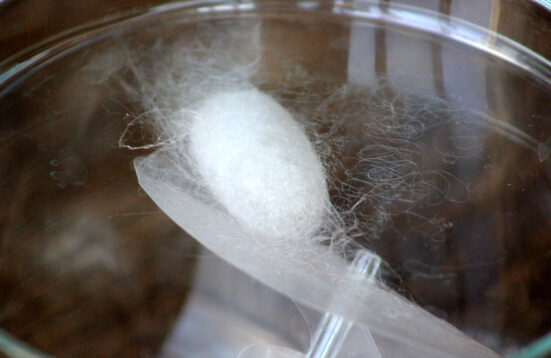The Silkworm Project
Art + Design Research
Vivian Xu
Vivian Xu is a media artist and researcher based in Shanghai. Her work is situated between bio and electronic media in creating new forms of machine logic, life and sensory systems, and often takes the form of object, installation or wearable. In The Silkworm Project Vivian Xu explores the possibilities of using silkworms to design a series of hybrid machines capable of producing self-organised 2D and 3D silk structures. Xu wants to understand how far the behaviour of insects can serve as a foundation for technological design. To this end she has developed cybernetic devices based on both biological and computer-controlled logic. The artist-designer works on the creation of self-organised silk structures designed by live silkworms, a posthuman machine.
Our collaboration with Vivian Xu has already started in 2015. Her project The Silkworm Project is closely tied to our series “Nonhuman Subjectivities” (2016/17) and “Nonhuman Agents” (2017/18). We appreciate Vivian Xu’s contribution at our conference “Nonhuman Agents in Art, Culture and Theory” (Nov 2017, Art Laboratory Berlin), which we published as a video recording (along with all other conference contributions) in our web archive (see here). We are pleased to collaborate with the Berlin-based Max Planck Institute for the History of Science (MPIWG) on a four-month artistic research residency in Berlin by Vivian Xu (May-August 2019). The exhibition, talks, a symposium, and a workshop on sericulture by Vivian Xu will provide the public with insights into this fascinating long-term project.
Art Laboratory Berlin is happy to exhibit Xu’s projects for the first time in Europe.
The Silkworm Project is the first of an ongoing series titled The Insect Trilogy, in which she examines the behaviour of silkworms, ants and bees in order to take this into account in the design of machines. Combining the 5000 year-old tradition of sericulture with new technologies, Vivian Xu’s work investigates the role of human and nonhuman, biological and technological, and the permeable borders between them. Her silk machines are based on a closed feedback loop that creates an autonomous production system that is both organic and artificial, biological and computational.
Vivian Xu’s first silkworm machine, Silkworm Machine I: Flat Spinning, refers directly to the entangled histories of textile weaving and computing. The machine is a stack of square shelves, based in part on traditional Chinese sericulture, but it also resembles the stack of a magnetic core memory unit. Both refer to the very human tradition of imposing Cartesian structures in the world. In her Silkworm Machine II: Spatial Spinning, Xu decided to design a machine around the organism, integrating the biological and sensory into the mechanical. The artist is interested in “presenting the spatial perspective of the worm through the machine design, to try and probe into inner workings of the silkworm’s worldview.” Silk spinning equals insect architecture – building a space in which the silkworm can safely pupate.
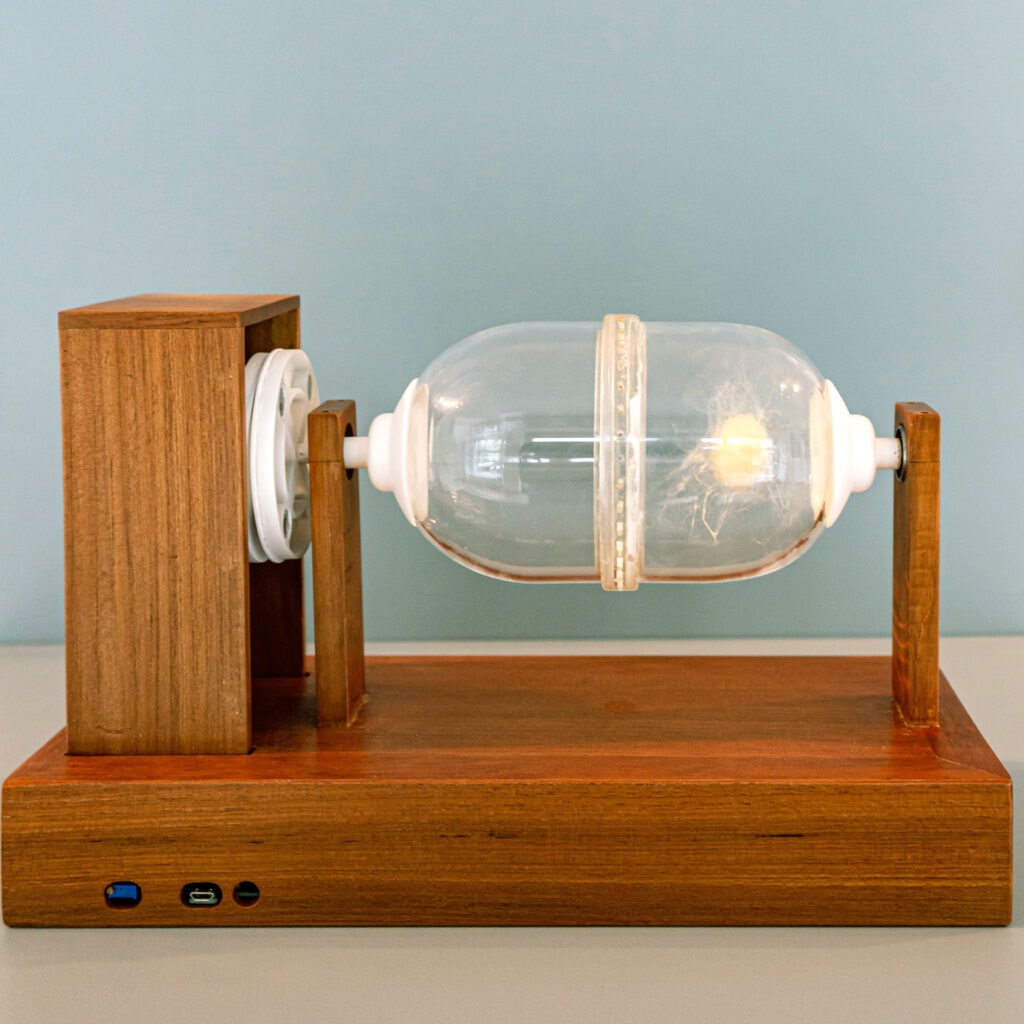
The most recent prototype of The Silkworm Project, Machine III – Magnetic Spinning Machine, financially supported by Art Laboratory Berlin, merges machines I and II. It stresses a hybrid bionic perspective that is speculative in its nature. On one level it tries to think about how we design systems and machines. Almost resembling a space capsule – elliptical and planetary – as if rotating in its own little orbit. Neither fully machine-like, nor purely biological; it is a hybrid. The machine aims to disrupt the insect’s equilibrium, introduce confusion, and track the silkworm’s perceptual blind spot through the spun silk structures. Like Machine II this machine uses curved surfaces to challenge the silkworm, which usually uses corners and angles to anchor its structures. Vivian Xu’s Silkworm Project posits a posthuman question of autonomous biofabrication: How can creatures and machines function together to weave new biomaterials? Xu noticed recently: “I am interested in speculating on a new bionic system logic, where worm and machine form a levitated rotatory ecosystem.”
Regine Rapp & Christian de Lutz (curators)
Vivian Xu (b. 1985) is a media artist, designer and researcher from Beijing, currently based in Shanghai. Her work explores the boundaries between bio and electronic media in creating new forms of machine logic, life and sensory systems, and often take the form of object, installation and/or wearable. She has shown, lectured, and performed at various institutions in China, the US, Germany, and Australia, including the National Art Museum of China (Beijing), the Central Academy of Fine Art (Beijing), the China Academy of Art (Hangzhou), the Chronus Art Center (Shanghai), the Rockbund Museum (Shanghai), the Shanghai Symphony Orchestra (Shanghai), the New York Science Museum (New York), Gallery Ho (New York), Art Laboratory Berlin (Berlin), SymbioticA at University of Western Australia (Perth), and currently at the Max Planck Institute for the History of Science (Berlin). Vivian co-founded Dogma Lab, a trans-disciplinary design lab in Shanghai, that is dedicated to creating experimental research at the intersection of design, technology, art and science. Between 2013-2015, she was Research Fellow at New York University Shanghai. Since then, she has lectured at various universities and programs, including Shanghai Tech University, Chinese University of Hong Kong Shenzhen Campus, Roy Ascott Technoetic Arts program (Shanghai), etc. Her work has been featured in media and press, including VICE China, Elle US, and the China Global TV English Channel, etc. Xu received her MFA in Design and Technology at Parsons the New School for Design in 2013.
Activities
The Silkworm Project
- Vivian Xu
The Artist-Silkworm Interface
- The Agricultural Treatise as Source and Scrutiny for Creating an Artist Book
- Vivan Xu | Lisa Onaga | Dagmar Schäfer | Regine Rapp | Anna Grasskamp | Yubin Shen
Conversations in Silk
- Artist and scholar talk
- Vivian Xu and Lisa Onaga
THE SILKWORM PROJECT Workshop
- Vivian Xu

